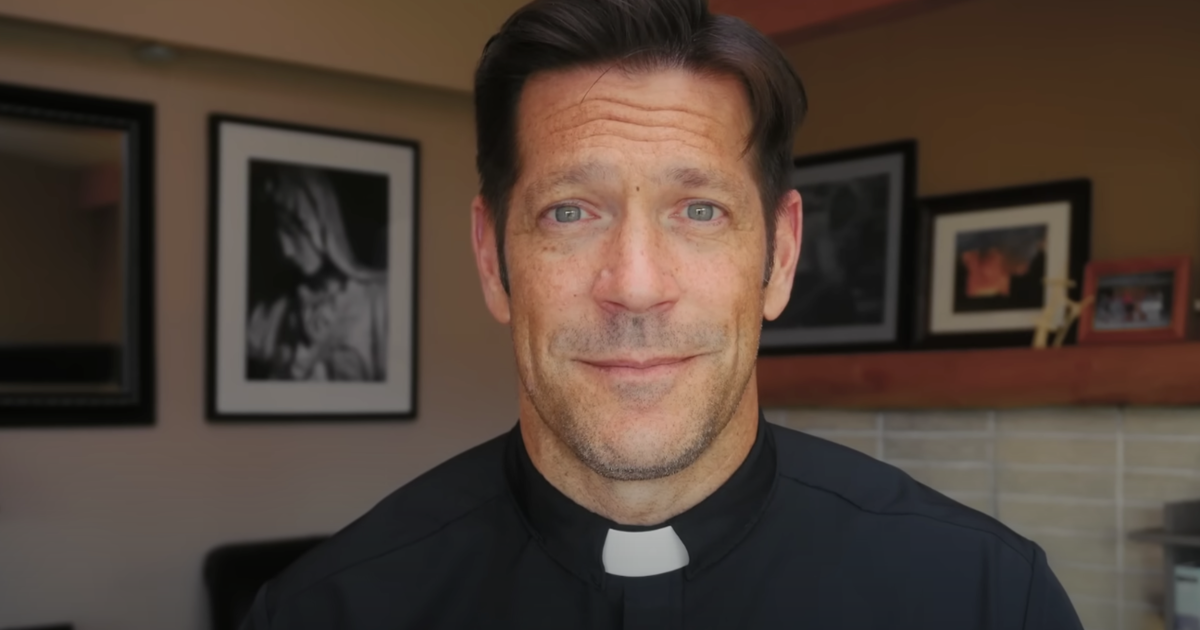More than once, having paused from my daily tasks or stresses, I have glanced up at the heavens, searching for the reminder that there is something more than just what our earthly existence can provide. Often, during those times looking at the sky, I have watched the clouds, occasionally making out shapes arranged within them. Like children who might excitedly shout, “That cloud looks like a sailboat,” for a moment, the shapeless clouds give way to something tangible and clear.
And then, just as quickly as the image was revealed, the clouds shift and the image is no longer there: no longer crisp and certain as it once was. Sometimes the clouds in the sky change into a new image, while other times, they remain just that, clouds.
Embarking on the Path of Discernment
It is in recalling the ever-morphing clouds in the sky that I reflect on the ever-adapting process of discernment. To discern means to try and figure out God’s will for you in a given situation. These situations are typically not the day-to-day questions of what to eat or what to wear, but surround bigger, more multifaceted life questions such as whether or not to take a given job, move to a different state, or marry a certain person.
Oftentimes, discernment can be for a major decision, but from what I have learned from experience, discernment in many areas of life is often not a “once and done” process. In fact, it is a process consistently requiring us to ask again and again, reflect again and again, and ultimately continue to discern for the rest of our lives where we will be best suited to serve God and others.
Love One Another as Faithful Stewards
The other day, I was reading two small booklets by two priests, and was fascinated by the parallels I saw between the two on discernment. The first booklet was Love One Another: A Retreat Guide on St. Thérèse’s Little Way of Charity by Fr. John Pietropaoli. The booklet quotes St. Thérèse of Lisieux, who said:
“Just as the sun shines simultaneously on the tall cedars and on the little flower as though it were alone on the earth, so Our Lord is occupied particularly with each soul, as though there were no others like it.”
16
In other words, the Lord sees us and is concerned about us and has a purpose for us regardless of our background, status, or ability. This belief is one of the first steps in any discernment. Once we come to view God as being invested in us and our lives, we begin to believe that God cares about us and that our actions and choices matter to him. Only then, can we begin to ask where we might best serve him and others.
The author quotes St. Thérèse of Lisieux again who, after contemplating her own place in God’s creation, concludes:
“I understood that love embraces all vocations … embraces all times and all locations … I cried out … I have found my vocation, my vocation is love!”
No matter our state of life as single, married or religious, after acknowledging God’s love for us, we can move our discernment process toward what will allow us to give and to receive the greatest amount of love. And in desiring this outcome of love, I believe our journey of discernment will be richly blessed.
The second booklet I read was The Faithful Steward: A Lenten Retreat Guide on St. Joseph by Fr. John Bartunek. After the description of Jesus’ foster father, we read:
“Although he [St. Joseph] had such an extraordinary role to play in salvation history, he was one of the most ordinary of saints. He performed no miracles and made no spectacular slashes. All he did was hear and obey the voice of God and work hard to fulfill his normal duties. That’s a path to holiness and happiness that all of us can relate to.”
20
When discerning, we might consider that Christ is calling us to something beyond ourselves. And indeed, St. Joseph was a part of something greater than himself in protecting and providing for Jesus. Nonetheless, he did so by “fulfilling his normal duties.” St. Joseph went about his days in faithfulness to those God had placed in his care and his daily commitment to carrying out the tasks that were before him and that was enough for him and for the Lord.
Entering the discernment process with goals of loving God, ourselves, and those around us while doing what we can to carry out our daily tasks faithfully as ministers to others can be good places to start when considering any big decision.
Discernment Methods & Advice
For those looking for concrete ways to enter into the discernment process of a decision, I have found the Daily Examen Prayer helpful. This method of prayer is modeled by St. Ignatius of Loyola. This particular Examen Prayer has the following five steps and is commonly prayed at the start or end of each day.
- Becoming aware of God’s presence and love for you. This usually entails finding a quiet place alone to rest comfortably and to focus one’s thoughts on the Lord and on an acknowledgment that at all times, he loves you.
- Ask God for the grace to understand how he is already working in your life. In discerning anything, we must never lose sight of the fact that God has always and will always be working in our lives, regardless of our present circumstance and the ultimate decision that we decide.
- Review the day. In reviewing your day, try to be as specific and honest as possible, calling to mind particular moments, situations, people, and feelings that arose within that day.
- Reflect on the day. In reflecting on your day, call to mind what you did, said, or thought relating to those above moments, situations, people, or feelings that arose. Were your words, actions, or thoughts ones that brought you closer to God and to others?
- Look forward to tomorrow. Consider how you might do better in the coming days and align yourself more with where you feel God has placed you and the opportunities he is presenting to you. You can conclude with an Our Father if you wish.
Final Advice
My final advice when it comes to discerning any big decision, opportunity, or crossroads in one’s life is threefold.
- Listen to your heart. A common fear I have had in any discernment process is wondering if God may be asking me to do something I might not want for myself. While it is true that God may be asking you to try something hard, something that will challenge you or allow you to grow, he will not ask you to do something that does not ultimately bring you peace or allow you to build up the talents and skills and interests he has already given you.
- Consider small steps and big steps. I have learned the hard way that it is important to not try to tackle too much at once in discernment. Instead, discern little by little. Over time one decision can lead to the next and eventually you are making big decisions that don’t seem so big once you have allowed the Lord to guide you through the smaller steps.
- Seeing multiple paths: A misconception I once believed was that there was somehow one true path for me and that if I couldn’t determine what that path was, then I wouldn’t be fulfilling God’s plan for my life. The reality, however, is much more expansive. So often in Scripture, we see how God brought good out of situations that seemed impossible. In the Old Testament, God promised Abraham and Sarah descendants, and even though they went about it their own way by conceiving a son through Hagar, God still provided for all involved and gave descendants to both Isaac and Ishmael. In the New Testament, the disciples continually doubt or fail to understand Jesus’ plans and mission and yet he never gives up on loving, leading, and believing in them.
Even if you don’t know exactly where you are supposed to be, trust that God is loving you and helping you through any and every situation.
You May Also Like:
Pray, Decide, and Don’t Worry: Five Steps to Discerning God’s Will [Book]
All About Discernment: Dating, Marriage, and Jackie and Bobby Angel [Fr. Josh Johnson Podcast]
The Key to Discernment [Fr. Mike Schmitz Video]
How to Discern Pretty Much Anything [CFRs Video]

Allison DeBoer is a Washington native and longtime parishioner at St. Vincent De Paul Parish in Federal Way. She worked in her college writing center for four years and graduated from Seattle Pacific University in 2019, where she received a bachelor’s degree in English creative writing. She works as the benefits assistant for the Catholic Archdiocese of Seattle. Her work has been published in Our Sunday Visitor and Radiant Magazine. She is an avid reader, devoted to her faith, family, and friends. In her free time, Allison loves caring for animals, training dogs, watching old-fashioned films, and dancing. Her favorite Catholic voices are Flannery O’Connor and St. Teresa of Avila.
Featured photo by Billy Huynh on Unsplash
Works Cited:
Bartunek, John. “The Faithful Steward: Lenten Retreat Guide on St. Joseph” RCSpirituality Center. 2017.
Pietropaoli, John. “Love One Another: A Retreat Guide on St. Thérèse Little Way of Charity.” RCSpirituality Center. 2017.






Great reminder that we don’t need to know it all or do it all at once. And that God is with us every step of the way. God bless!